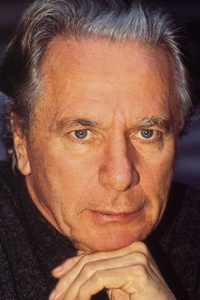Maurice Jarre facts for kids
Quick facts for kids
Maurice Jarre
|
|
|---|---|
 |
|
| Background information | |
| Born | 13 September 1924 Lyon, France |
| Died | 28 March 2009 (aged 84) Los Angeles, California, U.S. |
| Occupation(s) | Composer, conductor |
| Years active | 1958–2001 |
| Associated acts | Jean-Michel Jarre |
Maurice-Alexis Jarre (born September 13, 1924 – died March 28, 2009) was a famous French composer and conductor. He is most known for creating music for movies, called film scores. He worked a lot with the movie director David Lean.
Maurice Jarre wrote the music for all of David Lean's films, from Lawrence of Arabia (1962) to A Passage to India (1984). He was nominated for nine Academy Awards, which are also known as Oscars. He won three Oscars for Lawrence of Arabia (1962), Doctor Zhivago (1965), and A Passage to India (1984). All these winning films were directed by David Lean.
Jarre also created music for many other popular movies. These include Eyes Without a Face (1959), The Longest Day (1962), The Train (1964), Dead Poets Society (1989), and Ghost (1990). He worked with many great directors like Alfred Hitchcock and John Huston.
He won four Golden Globes, three BAFTA Awards, and a Grammy Award. He even has a star on the Hollywood Walk of Fame. One of his most famous tunes is "Lara's Theme" from Doctor Zhivago. It later became the song "Somewhere My Love."
Maurice Jarre was the father of Jean-Michel Jarre, who is also a well-known musician.
Contents
Early Life and Musical Journey
Maurice Jarre was born in Lyon, France. His father was a radio technical director. Maurice first started studying engineering at the Sorbonne. However, he soon realized his true passion was music.
Against his father's wishes, he left engineering. He then joined the Conservatoire de Paris to study how to compose music and understand harmony. He chose percussion as his main instrument. Later, he became the director of the Théâtre National Populaire. He recorded his first movie music in France in 1951.
Creating Music for Movies
In 1961, Maurice Jarre's music career changed a lot. A film producer named Sam Spiegel asked him to write the music for the big movie Lawrence of Arabia. This movie was directed by David Lean.
Jarre's music for Lawrence of Arabia was highly praised. It won him his first Oscar. After this, he composed music for all of David Lean's movies that followed. He also worked on The Train (1964) and Grand Prix (1966).
Another huge success was David Lean's Doctor Zhivago. This movie featured the famous tune "Lara's Theme". This tune later became the song "Somewhere My Love." Doctor Zhivago earned Jarre his second Oscar.
He also worked with director Alfred Hitchcock on Topaz. Hitchcock was very happy with Jarre's music for the film. Jarre was nominated for another Oscar for his music in The Message in 1976. He also won a BAFTA Award for Dead Poets Society (1989).
In the 1970s and 1980s, Jarre explored science fiction movies. He composed for films like The Island at the Top of the World (1974), Dreamscape (1984), and Mad Max Beyond Thunderdome (1985). For Mad Max Beyond Thunderdome, he used a full orchestra, a chorus, and unique instruments like the digeridoo.
In 1990, Jarre was nominated for an Oscar again for the movie Ghost. His music for the final scene of Ghost was based on "Unchained Melody". Other composers, like John Williams, greatly respected Jarre's work. Williams said Jarre made a lasting contribution to film music.
Jarre also composed music for TV shows. This includes the theme for the miniseries Jesus of Nazareth (1977) and Shōgun (1980). His last project was in 2001, for a TV miniseries called Uprising.
Maurice Jarre was considered one of the most important film music composers of the 20th century. He was known for both subtle background music and grand, sweeping themes. He used traditional orchestras but also experimented with electronic sounds later in his career.
Musical Style and Experimentation
Maurice Jarre mainly wrote music for orchestras. But in the 1980s, he started to use more synthesized music. He explained that creating electronic music for films like Witness was actually harder and took more time than writing for an orchestra.
His electronic scores from the 1980s include Fatal Attraction and The Year of Living Dangerously. Many of his scores from that time also mixed electronic sounds with acoustic instruments. Examples include Gorillas in the Mist and Dead Poets Society.
His Family Life
Maurice Jarre was married four times. His first marriage was to Francette Pejot, and they had a son, Jean-Michel Jarre. Jean-Michel became a famous French composer and a pioneer in electronic music. When Jean-Michel was five, Maurice moved to the United States, and Jean-Michel stayed in France with his mother.
Later, Maurice married French actress Dany Saval, and they had a daughter named Stephanie. He then married American actress Laura Devon. During this marriage, he adopted her son, Kevin Jarre, who became a screenwriter for movies like Glory. From 1984 until his death, he was married to Fong F. Khong.
His Passing
Maurice Jarre passed away from cancer on March 28, 2009, in Los Angeles.
Awards and Recognition
Maurice Jarre won three Academy Awards and was nominated nine times in total. He also won four Golden Globes and was nominated ten times.
The American Film Institute (AFI) ranked Jarre's music for Lawrence of Arabia as the 3rd greatest film score ever. His scores for Doctor Zhivago (1965), A Passage to India (1984), and Ryan's Daughter (1970) were also nominated for this prestigious list.
He also received the Lifetime Achievement Award from the ASCAP in 1993.
Images for kids
See also
 In Spanish: Maurice Jarre para niños
In Spanish: Maurice Jarre para niños
 | Precious Adams |
 | Lauren Anderson |
 | Janet Collins |


